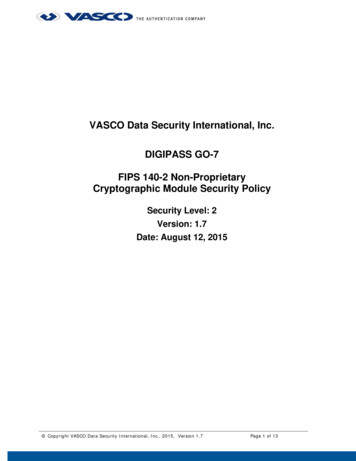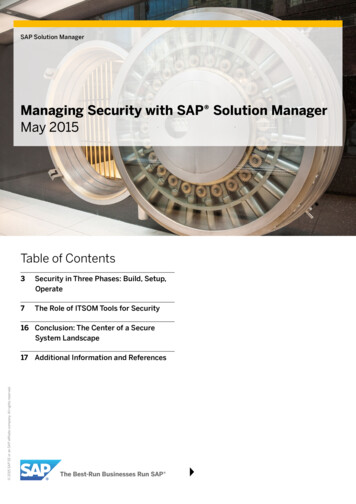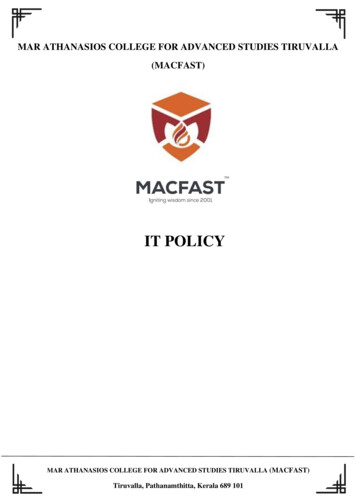
Transcription
Data Security Operating Policy(DSOP)Change IconsImportant updates are listed in the Summary of Changes Table and also indicated in the DSOP with a change icon. A change iconalongside the title of a section or subsection denotes revised, added, or removed text from the section or subsection. Changes inthe DSOP are indicated with a change icon as shown here:Summary of Changes TableImportant updates are listed in the following table and are also indicated in the DSOP with a change icon.Section/SubsectionDescription of ChangeChange IconsAdded Change Icons language.Summary of Changes TableAdded Summary of Changes Table.Section 1, “Cardholder DataCompromise”Added Cardholder Data Compromise Program.Section 3, “Data IncidentManagement Obligations”Increased the Data Incident notification timeframe from 24 to 72 hours.Section 5, “Important PeriodicValidation of Your Systems”Updated the Non-Validation fee table.Increased the Level 3 and Level 4 Merchant Fee if Validation Documentation isnot received by the deadline.GlossaryAdded/modified definitions.Data Security Operating Policy(DSOP)Data Security Operating Policy (DSOP)April 20211
Data Security Operating Policy (DSOP)As a leader in consumer protection, American Express has a long-standing commitment to protect Cardholder Data andSensitive Authentication Data, ensuring that it is kept secure.Compromised data negatively impacts consumers, Merchants, Service Providers, and card issuers. Even one incident can severelydamage a company’s reputation and impair its ability to effectively conduct business. Addressing this threat by implementingsecurity operating policies can help improve customer trust, increase profitability, and enhance a company’s reputation.American Express knows that our Merchants and Service Providers (collectively, you) share our concern and requires, as part ofyour responsibilities, that you comply with the data security provisions in your agreement to accept (in the case of Merchants) orprocess (in the case of Service Providers) the American Express Card (each, respectively, the Agreement) and this Data SecurityOperating Policy, which we may amend from time to time. These requirements apply to all your equipment, systems, and networks(and their components) on which encryption keys, Cardholder Data, or Sensitive Authentication Data (or a combination of those)are stored, processed, or transmitted.Capitalized terms used but not defined herein have the meanings ascribed to them in the glossary at the end of this policy.Section 1Cardholder Data CompromiseYou must, and you must cause your Covered Parties to, evaluate and remediate data security gaps in yourCardholder Data Environment (CDE) upon notification, from American Express, of a potential Cardholder Datacompromise. Examples of Cardholder Data compromise include, but are not limited to: Common Point of Purchase (CPP): American Express Cardmembers report fraudulent transactions on theirCard accounts and are identified and determined to have originated from making purchases at yourEstablishments Card Data Found: American Express Card and Cardholder Data found on the world wide web linked totransactions at your Establishments Malware Suspected: American Express suspects you are using software infected with or vulnerable tomalicious codeYour Cardholder Data compromise obligations: You must promptly review your CDE for data security gaps and remediate any findings You must cause your third-party vendor(s) to conduct a thorough investigation of your CDE if outsourced You must provide a summary of action taken or planned of your review, evaluation and/or remediation effortsupon notification from American Express You must provide updated PCI DSS validation documents in accordance with Section 5, Important PeriodicValidation of Your Systems, Action 3: Complete the Validation Documentation that you must send toAmerican Express below. As applicable, you must engage a qualified PCI Forensic Investigator (PFI) to examine your CDE if you or yourthird-party vendor(s) is unable to resolve the Cardholder Data compromise within a reasonable period oftime, as determined by American Express.American Express has the right to impose non-compliance fees, withhold payments and/or terminate theAgreement if you fail to comply with these obligations.April 2021AXP Internal2
Data Security Operating Policy (DSOP)Cardholder Data Compromise Non-Compliance Fee TableLevel 1Merchant orLevel 1ServiceProviderLevel 2Merchant orLevel 2ServiceProviderLevel 3 or Level 4MerchantNon-compliance fee assessed whenCardholder Data compromiseobligations are not satisfied within 45days from the date of notification.USD 25,000USD 5,000USD 1,000Non-compliance fee assessed whenCardholder Data compromiseobligations are not satisfied within 90days from the date of notification.USD 35,000USD 10,000USD 2,500Non-compliance fee assessed whenCardholder Data compromiseobligations are not satisfied within 120days from the date of notification.NOTE: Non-compliance fees maycontinue to be applied monthly untilthe obligations are met or CardholderData compromise is resolved.USD 45,000USD 15,000USD 5,000DescriptionIf your Cardholder Data compromise obligations are not satisfied within 120 days from the date of notification,then American Express has the right to impose the Non-compliance fees cumulatively, withhold payments, and/orterminate the AgreementSection 2Standards for Protection of Encryption Keys, Cardholder Data, and SensitiveAuthentication DataYou must, and you must cause your Covered Parties to: store Cardholder Data only to facilitate American Express Card Transactions in accordance with, and asrequired by, the Agreement. comply with the current PCI DSS and other PCI SSC Requirements applicable to your processing, storing, ortransmitting of Cardholder Data or Sensitive Authentication Data no later than the effective date forimplementing that version of the applicable requirement. use, when deploying new or replacement PIN Entry Devices or Payment Applications (or both), in attendedlocations, only those that are PCI-Approved.You must protect all American Express Charge records, and Credit records retained pursuant to the Agreement inaccordance with these data security provisions; you must use these records only for purposes of the Agreementand safeguard them accordingly. You are financially and otherwise liable to American Express for ensuring yourCovered Parties’ compliance with these data security provisions (other than for demonstrating your CoveredParties’ compliance with this policy under Section 5, Important Periodic Validation of Your Systems, except asotherwise provided in that section).April 2021AXP Internal3
Data Security Operating Policy (DSOP)Section 3Data Incident Management ObligationsYou must notify American Express immediately and in no case later than seventy-two (72) hours after discoveryof a Data Incident.To notify American Express, contact the American Express Enterprise Incident Response Program (EIRP) toll freeat 1.888.732.3750, or at 1.602.537.3021, or email at EIRP@aexp.com. You must designate an individual as yourcontact regarding such Data Incident. In addition: You must conduct a thorough forensic investigation of each Data Incident. For Data Incidents involving 10,000 or more unique Card Numbers, you must engage a PCI ForensicInvestigator (PFI) to conduct this investigation within five (5) days following discovery of a Data Incident. The unedited forensic investigation report must be provided to American Express within ten (10) businessdays of its completion. You must promptly provide to American Express all Compromised Card Numbers. American Expressreserves the right to conduct its own internal analysis to identify Card Numbers involved in the Data Incident.Forensic investigation reports must be completed using the current Forensic Incident Final Report Templateavailable from PCI. Such report must include forensic reviews, reports on compliance, and all other informationrelated to the Data Incident; identify the cause of the Data Incident; confirm whether or not you were incompliance with the PCI DSS at the time of the Data Incident; and verify your ability to prevent future DataIncidents by (i) providing a plan for remediating all PCI DSS deficiencies, and (ii) participating in the AmericanExpress compliance program (as described below). Upon American Express' request, you shall provide validationby a Qualified Security Assessor (QSA) that the deficiencies have been remediated.Notwithstanding the foregoing paragraphs of this Section 3, Data Incident Management Obligations: American Express may, in its sole discretion, require you to engage a PFI to conduct an investigation of a DataIncident for Data Incidents involving less than 10,000 unique Card Numbers. Any such investigation mustcomply with the requirements set forth above in this Section 3, Data Incident Management Obligations andmust be completed within the timeframe required by American Express. American Express may, in its sole discretion, separately engage a PFI to conduct an investigation for any DataIncident and may charge the cost of such investigation to you.You agree to work with American Express to rectify any issues arising from the Data Incident, including consultingwith American Express about your communications to Cardmembers affected by the Data Incident and providing(and obtaining any waivers necessary to provide) to American Express all relevant information to verify yourability to prevent future Data Incidents in a manner consistent with the Agreement.Notwithstanding any contrary confidentiality obligation in the Agreement, American Express has the right todisclose information about any Data Incident to American Express Cardmembers, Issuers, other participants onthe American Express Network, and the general public as required by Applicable Law; by judicial, administrative,or regulatory order, decree, subpoena, request, or other process; in order to mitigate the risk of fraud or otherharm; or otherwise to the extent appropriate to operate the American Express Network.Section 4Indemnity Obligations for a Data IncidentYour indemnity obligations to American Express under the Agreement for Data Incidents shall be determined,without waiving any of American Express' other rights and remedies, under this Section 4, Indemnity Obligationsfor a Data Incident. In addition to your indemnity obligations (if any), you may be subject to a Data Incident noncompliance fee as described below in this Section 4, Indemnity Obligations for a Data Incident.For Data Incidents that involve: April 202110,000 or more American Express Card Numbers with either of the following:AXP Internal4
Data Security Operating Policy (DSOP) Sensitive Authentication Data, or Expiration Dateyou shall compensate American Express at the rate of 5 USD per account number.However, American Express will not seek indemnification from you for a Data Incident that involves: less than 10,000 American Express Card Numbers, or more than 10,000 American Express Card Numbers, if you meet the following conditions: you notified American Express of the Data Incident pursuant to this Section 4, Indemnity Obligations for aData Incident, you were in compliance at the time of the Data Incident with the PCI DSS (as determined by the PFI’sinvestigation of the Data Incident), and the Data Incident was not caused by your wrongful conduct or that of your Covered Parties.Notwithstanding the foregoing paragraphs of this Section 4, Indemnity Obligations for a Data Incident, for anyData Incident, regardless of the number of American Express Card Numbers, you shall pay American Express aData Incident non-compliance fee not to exceed 100,000 USD per Data Incident (as determined by AmericanExpress in its sole discretion) in the event that you fail to comply with any of your obligations set forth in Section 3,Data Incident Management Obligations. For the avoidance of doubt, the total Data Incident non-compliance feeassessed for any single Data Incident shall not exceed 100,000 USD.American Express will exclude from its calculation any American Express Card Account Number that was includedin a prior Data Incident indemnity claim made by us within the twelve (12) months prior to the Notification Date. Allcalculations made by American Express under this methodology are final.American Express may bill you for the full amount of your indemnity obligations for Data Incidents or deduct theamount from American Express’ payments to you (or debit your bank Account accordingly) pursuant to theAgreement.Merchants’ indemnity obligations for Data Incidents hereunder shall not be considered incidental, indirect,speculative, consequential, special, punitive, or exemplary damages under the Agreement; provided that suchobligations do not include damages related to or in the nature of lost profits or revenues, loss of goodwill, or lossof business opportunities.In its sole discretion, American Express may reduce the indemnity obligation for Merchants solely for DataIncidents that meet each of the following criteria:April 2021 Applicable Risk-Mitigating Technologies were used prior to the Data Incident and were in use during the entireData Incident Event Window, A thorough investigation in accordance with the PFI program was completed (unless otherwise previouslyagreed in writing), Forensic report clearly states the Risk-Mitigating Technologies were used to process, store, and/or transmitthe data at the time of the Data Incident, and You do not store (and did not store throughout the Data Incident Event Window) Sensitive AuthenticationData or any Cardholder Data that has not been made unreadable.AXP Internal5
Data Security Operating Policy (DSOP)Where an indemnity reduction is available, the reduction to your indemnity obligation (excluding anynoncompliance fees payable), is determined as follows:Indemnity ObligationReductionRequired CriteriaStandard Reduction: 50% 75% of total Transactions processed on Chip Enabled Devices1 ORRisk-Mitigating Technology in use at 75% of Merchant locations2Enhanced Reduction: 75% to 100%12 75% of all Transactions processed on Chip Enabled Devices1 ANDanother Risk-Mitigating Technology in use at 75% of Merchantlocations2As determined by American Express internal analysisAs determined by PFI investigation The Enhanced Reduction (75% to 100%) shall be determined based on the lesser of the percentage ofTransactions using Chip Enabled Devices AND Merchant locations using another Risk-Mitigating Technology.The examples below illustrate the calculation of the indemnity reduction. To qualify as a Risk-Mitigating Technology, you must demonstrate effective utilization of the technology inaccordance with its design and intended purpose. For example, deploying Chip Enabled Devices andprocessing Chip Cards as Magnetic Stripe or Key Entered Transactions, is NOT an effective use of thistechnology. The percentage of locations that use a Risk-Mitigating Technology is determined by PFI investigation. The reduction in the indemnity obligation does not apply to any non-compliance fees payable in relation to theData Incident.Ex.1Risk-MitigatingTechnologies in useEnhanced IndemnityObligation ReductionEligible?80% of Transactions on ChipEnabled DevicesNo50%: Standard Reduction (Lessthan 75% use of Risk-MitigatingTechnology does not qualify forEnhanced Reduction)1Yes77%: Enhanced Reduction (basedon 77% use of Risk-MitigatingTechnology)Yes93%: Enhanced Reduction (basedon 93% of Transactions on ChipEnabled Devices)No50%: Standard Reduction (Lessthan 75% of Transactions on ChipEnabled Devices does not qualifyfor Enhanced Reduction)0% of locations use otherRisk-Mitigating Technology280% of Transactions on ChipEnabled Devices77% of locations use otherRisk-Mitigating Technology393% of Transactions on ChipEnabled Devices100% of locations use otherRisk-Mitigating Technology440% of Transactions on ChipEnabled Devices90% of locations use otherRisk-Mitigating Technology1April 2021ReductionA Data Incident involving 10,000 American Express Card Accounts, at a rate of 5 USD per account number (10,000 x 5 50,000 USD) may be eligible for a reduction of 50%, reducing the Indemnity Obligations from 50,000 to 25,000 USD,excluding any non-compliance fees.AXP Internal6
Data Security Operating Policy (DSOP)Section 5Important Periodic Validation of Your SystemsYou must take the following actions to validate under PCI DSS annually and quarterly as described below, thestatus of your and your Franchisees' equipment, systems, and/or networks (and their components) on whichCardholder Data or Sensitive Authentication Data are stored, processed, or transmitted.There are four actions required to complete validation:Action 1 – Participate in American Express’ compliance program under this policy.Action 2 – Understand your Level and Validation Requirements.Action 3 – Complete the Validation Documentation that you must send to American Express.Action 4 – Send the Validation Documentation to American Express within the prescribed timelines.Action 1: Participate in American Express’ Compliance Program under this PolicyLevel 1 Merchants, Level 2 Merchants, and all Service Providers, as described below, must participate in AmericanExpress’ PCI Compliance Program under this policy by providing the full name, email address, telephone number,and physical mailing address of an individual who will serve as their data security contact. You must submit thisinformation to SecureTrust, a division of Trustwave (https://portal.securetrust.com), which administers theprogram on behalf of American Express, by one of the methods listed in Action 4: Send the ValidationDocumentation to American Express below. You must notify SecureTrust if this information changes, providingupdated information where applicable. Your failure to provide such contact information will not affect our rights toassess fees for non-validation as outlined in the Non-Validation Fee Table.American Express may designate, at our sole discretion, certain Level 3 and Level 4 Merchants participation inAmerican Express’ compliance program under this policy by sending them written notice. The Merchant mustenroll no later than 90 days following receipt of the notice.Action 2: Understand your Level and Validation RequirementsThere are four Levels applicable to Merchants and two Levels applicable to Service Providers based on yourvolume of American Express Card Transactions. For Merchants, this is the volume submitted by theirestablishments that roll-up to the highest American Express Merchant account level.* You will fall into one of theLevels specified in the Merchant and Service Provider tables below.Buyer Initiated Payments (BIP) Transactions are not included in the volume of American Express CardTransactions to determine Merchant Level and validation requirements.* In the case of Franchisors, this includes volume from their Franchisee establishments. Franchisors who mandate that theirFranchisees use a specified Point of Sale (POS) System or Service Provider also must provide validation documentation for theaffected Franchisees.Merchant RequirementsMerchants (not Service Providers) have four possible classifications regarding their level and validationrequirements. After determining the Merchant level from the list below, see the Merchant Table to determinevalidation documentation requirements.April 2021 Level 1 Merchant – 2.5 million American Express Card Transactions or more per year; or any Merchant thatAmerican Express otherwise, in its discretion, assigns a Level 1. Level 2 Merchant – 50,000 to 2.5 million American Express Card Transactions per year. Level 3 Merchant – 10,000 to 50,000 American Express Card Transactions per year. Level 4 Merchant – Less than 10,000 American Express Card Transactions per year.AXP Internal7
Data Security Operating Policy (DSOP)Merchant TableValidation DocumentationMerchant Level/Annual AmericanExpressTransactionsOn-SiteAssessmentReport onCompliance (ROC)Self AssessmentQuestionnaire (SAQ)AND QuarterlyNetwork ScanSTEP Attestationfor eligibleMerchantsLevel 1/2.5 million or moreMandatoryNot applicableOptional (replaces ROC)Level 2/50,000 to 2.5 millionOptionalSAQ mandatory (unlesssubmitting an On-SiteAssessment); scanmandatory with certain SAQtypesOptional (replaces SAQand network scan orROC)Level 3/10,000 to 50,000OptionalSAQ optional (mandatory ifrequired by AmericanExpress); scan mandatorywith certain SAQ typesOptional (replaces SAQand network scan orROC)Level 4/10,000 or lessOptionalSAQ optional (mandatory ifrequired by AmericanExpress); scan mandatorywith certain SAQ typesOptional (replaces SAQand network scan orROC)* For the avoidance of doubt, Level 3 and Level 4 Merchants need not submit Validation Documentation unless required inAmerican Express’ discretion, but nevertheless must comply with, and are subject to liability under all other provisions of thisData Security Operating Policy.American Express reserves the right to verify the accuracy and appropriateness of the PCI validationdocumentation provided as needed, including by engaging, at American Express’ expense, a QSA or PFI of ourchoice.Security Technology Enhancement Program (STEP)Merchants that are compliant with PCI DSS may also, at American Express’ discretion, qualify for AmericanExpress’ STEP if they deploy certain additional security technologies throughout their Card processingenvironments. STEP applies only if the merchant has not experienced a Data Incident in the previous 12 monthsand if 75% of all merchant Card Transactions are performed using: EMV – on an active Chip-Enabled Device having a valid and current EMVCo (www.emvco.com)approval/certification and capable of processing AEIPS compliant Chip Card Transactions. (U.S. Merchantsmust include Contactless) Point-to-Point Encryption (P2PE) – communicated to the Merchant’s processor using a PCI-SSC-approvedor QSA-approved Point-to-Point Encryption systemMerchants eligible for STEP have reduced PCI Validation Documentation requirements, as further described inAction 3: Complete the Validation Documentation that you must send to American Express below.Service Provider RequirementsService Providers (not Merchants) have two possible classifications regarding their level and validationrequirements. After determining the Service Provider level from the list below, see the Service Provider Table todetermine validation documentation requirements.Level 1 Service Provider – 2.5 million American Express Card Transactions or more per year; or any ServiceProvider that American Express otherwise deems a Level 1.April 2021AXP Internal8
Data Security Operating Policy (DSOP)Level 2 Service Provider– less than 2.5 million American Express Card Transactions per year; or any ServiceProvider not deemed Level 1 by American Express.Service Providers are not eligible for STEP.Service Provider TableLevelValidation DocumentationRequirement1Annual Onsite Security Assessment Report on ComplianceMandatory2Annual SAQ D (Service Provider) and Quarterly Network Scan orAnnual Onsite Security Assessment Report on Compliance, if preferredMandatoryIt is recommended that Service Providers also comply with the PCI Designated Entities Supplemental Validation.Action 3: Complete the Validation Documentation that you must send to American ExpressThe following documents are required for different levels of Merchant and Service Provider as listed in theMerchant Table and Service Provider Table above.Annual Onsite Security Assessment – The Annual Onsite Security Assessment is a detailed onsite examinationof your equipment, systems, and networks (and their components) where Cardholder Data or SensitiveAuthentication Data (or both) are stored, processed, or transmitted. It must be performed by: a QSA, or you and attested to by your chief executive officer, chief financial officer, chief information security officer, orprincipal and submitted annually to American Express on the applicable Attestation of Compliance (AOC).The AOC must support compliance with all requirements of the PCI DSS and, upon request, include copies of thefull report on compliance (Level 1 Merchants and Level 1 Service Providers).Annual Self-Assessment Questionnaire – The Annual Self-Assessment is a process using the PCI DSS SAQ thatallows self-examination of your equipment, systems, and networks (and their components) where CardholderData or Sensitive Authentication Data (or both) are stored, processed, or transmitted. It must be performed byyou and certified by your chief executive officer, chief financial officer, chief information security officer, orprincipal. The AOC section of the SAQ must be submitted annually to American Express. The AOC section of theSAQ must certify your compliance with all requirements of the PCI DSS and include full copies of the SAQ onrequest (Level 2, Level 3, and Level 4 Merchants; Level 2 Service Providers).Quarterly Network Scan – The Quarterly Network Scan is a process that remotely tests your Internet-connectedcomputer networks and web servers for potential weaknesses and vulnerabilities. It must be performed by anApproved Scanning Vendor (ASV). You must complete and submit the ASV Scan Report Attestation of ScanCompliance (AOSC) or the executive summary of findings of the scan (and copies of the full scan, on request),quarterly to American Express. The AOSC or executive summary must certify that the results satisfy the PCI DSSscanning procedures, that no high risk issues are identified, and that the scan is passing or compliant (allMerchants except those who also submit an Onsite Security Assessment Report, STEP-eligible Merchants; and allService Providers). For the avoidance of doubt, Quarterly Network Scans are mandatory if required by theapplicable SAQ.Annual STEP Attestation Validation Documentation – The American Express Annual STEP QualificationAttestation (“STEP Attestation”) is available only to merchants who meet the criteria listed in Action 2:Understand your Level and Validation Requirements above. The STEP Attestation involves a process using PCIDSS requirements that allows self-examination of your equipment, systems, and networks (and theircomponents) where Cardholder Data or Sensitive Authentication Data (or both) are stored, processed, ortransmitted. It must be performed by you and certified by your chief executive officer, chief financial officer, chiefinformation security officer, or principal. You must complete the process by submitting the STEP Attestation formannually to American Express. (STEP-eligible Merchants only). The Annual STEP Attestation form is available fordownload via SecureTrust’s secure portal.April 2021AXP Internal9
Data Security Operating Policy (DSOP)Non Compliance with PCI DSS – If you are not compliant with the PCI DSS, then you must submit one of thefollowing documents: an Attestation of Compliance (AOC) including “Part 4. Action Plan for Non-Compliant Status” a PCI Prioritized Approach Tool Summary and Attestation of Compliance (PASAOC) a Project Plan Template (available for download via SecureTrust’s secure portal)Each of the above documents must designate a remediation date, not to exceed 12 months following thedocument completion date in order to achieve compliance. You must submit the appropriate document toAmerican Express by one of the methods listed in Action 4: Send the Validation Documentation to AmericanExpress below. You shall provide American Express with periodic updates of your progress toward remediation ofyour Non-Compliant Status (Level 1, Level 2, Level 3, and Level 4 Merchants; All Service Providers). For theavoidance of all doubt, Merchants that are not compliant with PCI DSS are not eligible for STEP.American Express shall not impose non-validation fees (described below) on you for non-compliance prior to theremediation date, but you remain liable to American Express for all indemnity obligations for a Data Incident andare subject to all other provisions of this policy.Action 4: Send the Validation Documentation to American ExpressAll Merchants and Service Providers required to participate in the American Express PCI Compliance Programmust submit the Validation Documentation marked “mandatory” in the tables in Action 2: Understand your Leveland Validation Requirements. You must submit your Validation Documentation to SecureTrust by one of thesemethods: Secure Portal: Validation Documentation may be uploaded via SecureTrust’s secure portal athttps://portal.securetrust.com.Please contact SecureTrust at 1-866-659-9016 or 1-312-267-3208 or via email atamericanexpresscompliance@securetrust.com for instructions on using this portal. Secure Fax: Validation Documentation may be faxed to 1-312-276-4019. Please include your name, DBA(Doing Business As) name, the name of your data security contact, your address and phone number,and, for Merchants only, your 10-digit American Express Merchant number.If you have general questions about the program or the process above, please contact SecureTrust at 1-866-6599016 or 1-312-267-3208, or via email at ce and validation are completed at your expense. By submitting Validation Documentation, yourepresent and warrant to American Express that you are authorized to disclose the information contained thereinand are providing the Validation Documentation to American Express without violating any other party’s rights.Non-Validation Fees and Termination of AgreementAmerican Express has the right to impose non-validation fees on you and terminate the Agreement if you do notfulfill these requirements or fail to provide the mandatory Validation Documentation to American Express by theapplicable deadline. American Express will notify you separately of the applicable deadline for each annual andquarterly reporting period.Apr
To notify American Express, contact the American Express Enterprise Incident Response Program (EIRP) toll free at 1.888.732.3750, or at 1.602.537.3021, or email at EIRP@aexp.com
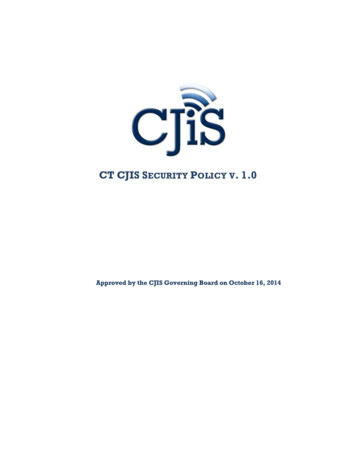
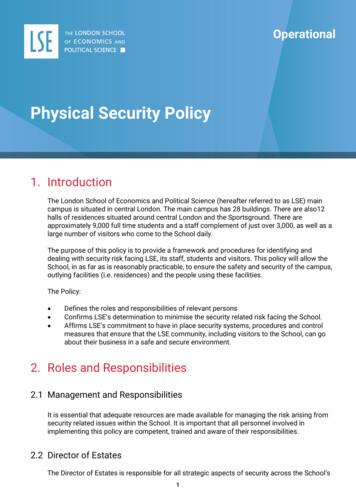
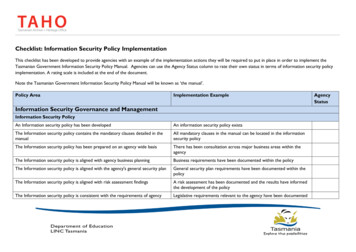
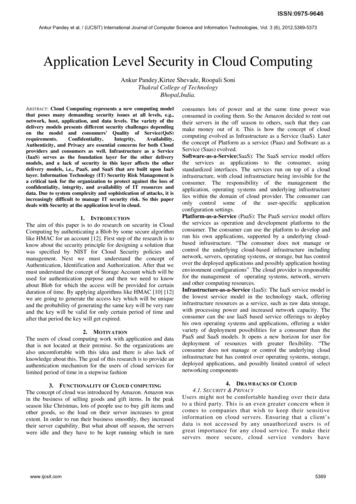

![Baseline IT Security Policy [S17] - GovCERT](/img/42/s17-v7-en.jpg)
